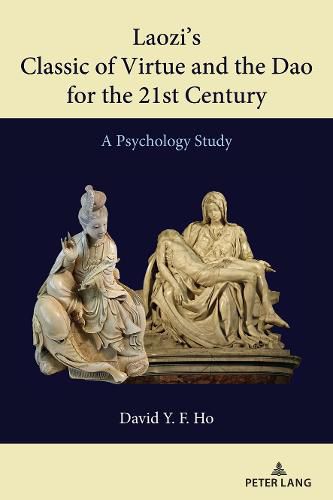Readings Newsletter
Become a Readings Member to make your shopping experience even easier.
Sign in or sign up for free!
You’re not far away from qualifying for FREE standard shipping within Australia
You’ve qualified for FREE standard shipping within Australia
The cart is loading…






This title is printed to order. This book may have been self-published. If so, we cannot guarantee the quality of the content. In the main most books will have gone through the editing process however some may not. We therefore suggest that you be aware of this before ordering this book. If in doubt check either the author or publisher’s details as we are unable to accept any returns unless they are faulty. Please contact us if you have any questions.
The book comprises a lengthy introduction and a complete translation of Laozi’s classic, with comments and notes on individual chapters. The introduction covers Daoism as the counterculture in China and beyond; the originality and distinctiveness of Laozi’s psychological and sociopolitical thoughts; the influence and contemporary relevance of the classic to life in the 21st century; and insights on bilingualism that the author gained in the process of translation.
This is the very first interpretation of Daoism from a psychological perspective. The topics covered include Laozi’s thoughts and their points of contact with modern psychology, the psychology of actions and nonactions, the cognitive and emotional aspects of the classic, psychological applications, difficulties of translation from a linguistic viewpoint, bilingualism-biculturalism, and a case study of my own bilingual experiences.
The book contains the first translation of the Beida Laozi (Peking University Laozi), which predates the current received text by several centuries. The author has renamed the classic as The Classic of Virtue and the Dao (DeDaoJing) to acknowledge that, in the Beida Laozi, the chapters on De (virtue) precede those on the Dao (Way).
The target audience comprises scholars, college students, as well as educated adults interested in psychology and religion or spirituality; mental health professionals interested in holistic health. Courses that may adopt the book include comparative religion, cultural or Asian studies, translation, bilingualism, and multiculturalism.
$9.00 standard shipping within Australia
FREE standard shipping within Australia for orders over $100.00
Express & International shipping calculated at checkout
This title is printed to order. This book may have been self-published. If so, we cannot guarantee the quality of the content. In the main most books will have gone through the editing process however some may not. We therefore suggest that you be aware of this before ordering this book. If in doubt check either the author or publisher’s details as we are unable to accept any returns unless they are faulty. Please contact us if you have any questions.
The book comprises a lengthy introduction and a complete translation of Laozi’s classic, with comments and notes on individual chapters. The introduction covers Daoism as the counterculture in China and beyond; the originality and distinctiveness of Laozi’s psychological and sociopolitical thoughts; the influence and contemporary relevance of the classic to life in the 21st century; and insights on bilingualism that the author gained in the process of translation.
This is the very first interpretation of Daoism from a psychological perspective. The topics covered include Laozi’s thoughts and their points of contact with modern psychology, the psychology of actions and nonactions, the cognitive and emotional aspects of the classic, psychological applications, difficulties of translation from a linguistic viewpoint, bilingualism-biculturalism, and a case study of my own bilingual experiences.
The book contains the first translation of the Beida Laozi (Peking University Laozi), which predates the current received text by several centuries. The author has renamed the classic as The Classic of Virtue and the Dao (DeDaoJing) to acknowledge that, in the Beida Laozi, the chapters on De (virtue) precede those on the Dao (Way).
The target audience comprises scholars, college students, as well as educated adults interested in psychology and religion or spirituality; mental health professionals interested in holistic health. Courses that may adopt the book include comparative religion, cultural or Asian studies, translation, bilingualism, and multiculturalism.